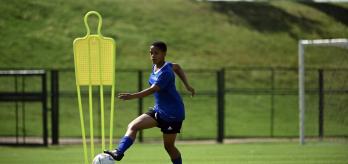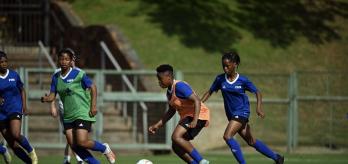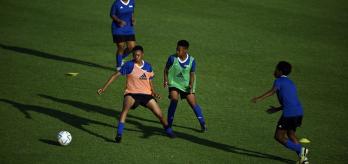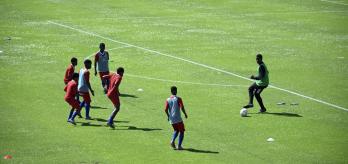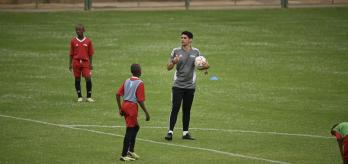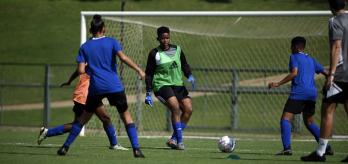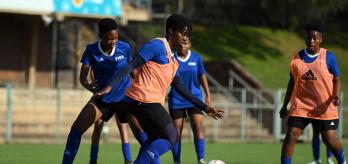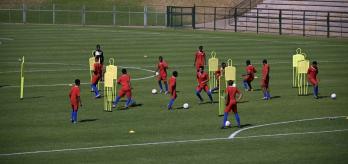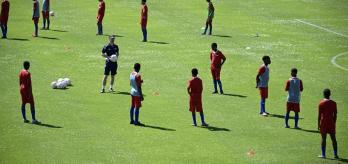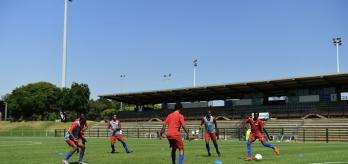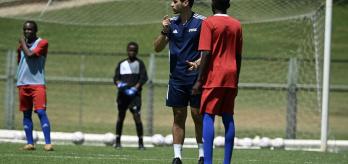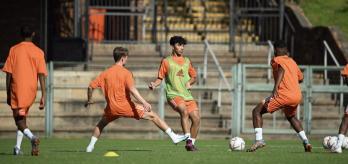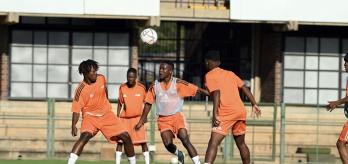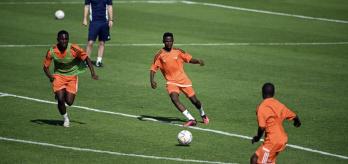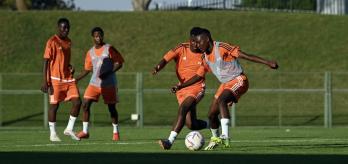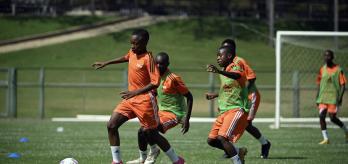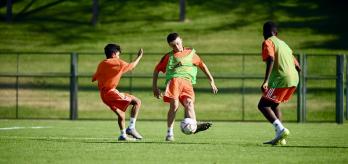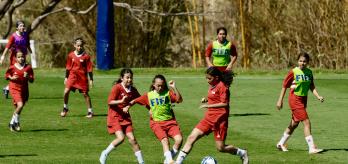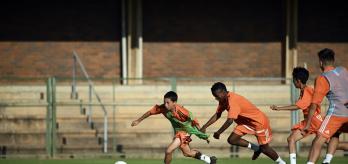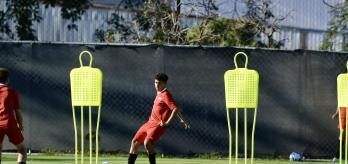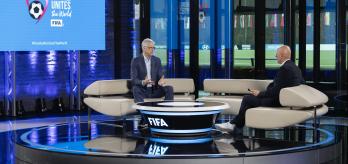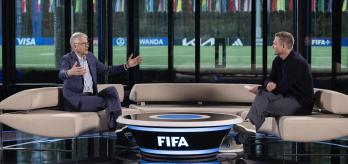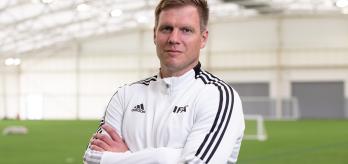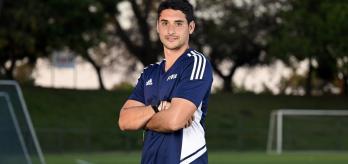Methodology
The intention: What is practised?
This three-player passing circuit simulates a midfielder receiving the ball from a defender while under pressure. Midfielders must recognize their options, such as receiving on the half-turn or passing backwards when heavily pressed. The drill enhances spatial awareness, including scanning over shoulders, adopting proper body positions, receiving on the back foot, and using an outstretched arm to gauge the press. To deceive defenders, players can increase movement speed and take a step in the opposite direction before receiving the pass. This exercise develops key decision-making and awareness skills essential for midfield play.
The scale: For whom is this relevant?
The drill revolves around the player, focusing on their ability to take in information and make decisions when receiving on the half-turn. The circuit is particularly relevant to midfielders trying to gain separation from an opponent who is tracking them and to find solutions to progress play. The scenario provides midfielders with the typical options available to them when facing their own goal, such as passing back to a player in the defensive line or receiving on the half-turn to find a team-mate beyond the pressure. The drill is position-specific, with the receiver acting as a midfielder operating inside the opposition’s shape and the other two players acting as passing options that are a common feature of this phase of play.
The practice type: How is this practice designed?
The exercise involves an unopposed passing activation that is designed to enhance a player’s awareness and ability to receive and play through pressure when facing their own goal. The players waiting behind the mannequins provide a target for the midfielder to play into. The pressing player provides an element of realism by forcing the receiving player to decide on the action they should take – a decision that should be based on the time and space available to them. The pressing player also acts as an obstacle that the midfielder must evade if they wish to receive on the half-turn.
Session plan
Organisation
-
Place 2 cones 15m apart (cones occupied by A and B).
-
Position 2 mannequins a further 15m away from the cone occupied by A, 1 either side of the cone occupied by B.
-
Place 2 or 3 players at each mannequin and cone.
Explanation
-
A plays a pass to B’s back foot.
-
B pulls wide of the cone to receive on the half-turn before playing a pass beyond either mannequin to C.
-
Players rotate positions after performing an action: A and B follow their passes and C dribbles the ball to the cone where A started the sequence.
Variation 1
-
B drops to receive A’s pass, with the next player at the cone occupied by B shadowing B’s movement.
-
B must decide whether to play a return pass to A or to receive on the half-turn and play to C.
-
Players who are shadowing should not shadow in every sequence, thereby forcing B to make a decision based on the level of pressure they are under.
Variation 2
-
If B is tightly marked, A can play directly to C.
-
In this scenario, B peels off and plays a one-two with C around the mannequin.
-
Receiving players have the freedom to make their own decisions, but they must base these on the information that they gather.
Variation 3
-
The player shadowing B tries to actively win the ball.
Key coaching points
Role of the coaches
-
First coach: leads the exercise and coaches the players throughout.
-
Second coach: offers the players support and encouragement.
-
Third coach: observes the exercise.





















